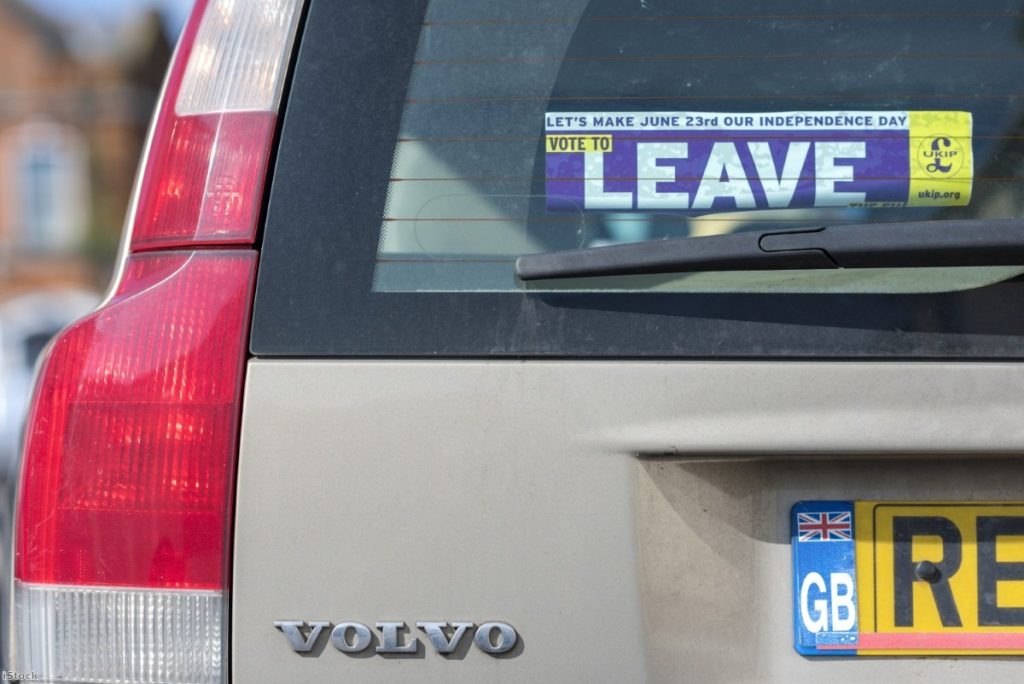By Steve Harman
In the early eighties my family moved away from a big city and bought a barn conversion in a Cumbrian village. That wasn't the only stereotype of the liberal middle classes we lived up to. Mum and dad were social workers and New Internationalist subscribers. We weren't like the other kids at primary school. We went on camping holidays in the Loire and they went to Butlin's. When they were going to watch submarines being launched, we were on CND demos.
To put it in the terms invented by David Goodhart in his new book 'The Road to Somewhere', we were a family of Anywheres (outward looking liberals) living among Somewheres (social conservatives with a strong sense of regional and national identity). With painful memories of the Wild West fancy dress party where I was the only kid dressed as an Indian, I recognise this picture of two distinct tribes, but disagree with the rest of Goodhart's analysis. He argues that the Somewheres have been marginalised and excluded from the public conversation while the confident Anywheres have gone on to rule the world.
My Road to Somewhere on Anywhere/Somewhere divide that gave us Brexit, review by AndrewMarr https://t.co/5fRQr1S0Yw + @bbcbigquestions today pic.twitter.com/kXJGjJXRog
Featured BASC responds to Scottish Government’s announcement on deer management
Featured Ofsted report into Religious Education shows long overdue need for reform, says Humanists UK
— David Goodhart (@David_Goodhart) March 19, 2017
It never felt like that to me. I can't remember a time when it seemed like the Anywheres were calling the political shots. We were a Labour family and watched our team get a kicking at every general election. Our constituency, Barrow-in-Furness, was home of the Vickers shipyard which built submarines, and anti-nuke Labour were about as popular as I was at school. When Neil Kinnock abandoned the commitment to unilateral disarmament, that changed. Labour captured the seat in 1992. But they had to go further to win over the rest of the country. The change they underwent in the Blair years wasn't just about ditching socialist policies but also about showing that it shared the cultural values of the Somewheres.
New Labour politicians are now remembered as a bunch of Islington luvvies, but they were never embarrassed to wrap themselves in the imagery and language of British nationalism. From employing a bulldog in a party political broadcast to promising “British jobs for British workers”, their rhetoric wouldn't have been out of place at a Ukip rally.
In power, Labour ran scared of any conflict with the Somewheres. Caving in to pressure from angry truckers with union jack placards, it froze fuel duty, costing the country £2 billion a year. Similarly, facing a revolt from older voters, it quickly U-turned on unpopular plans to increase the state pension by 75p a week, in line with inflation.
By contrast, New Labour relished any opportunity to pit against itself against those it could portray as part of a namby pamby elite. It justified top-up fees on the basis that dustmen shouldn't have to pay for the education of doctors and was happy to ignore everyone who marched against the invasion of Iraq.

When Labour was eventually kicked out, it was largely on a wave of anti-immigrant sentiment. David Cameron, terrified of Ukip – the militant political wing of the Somewheres – maintained the policy of giving them everything they wanted, including a referendum on EU membership. From this perspective, Brexit was not a popular revolt by people who had been left behind, but the logical outcome of the domination of British political life by nationalism and social conservatism.
None of this means that governments have always implemented policies that have really helped the Somewheres. Employment rights have been eroded. Inequality has grown. Public services continue to decay. But by failing to challenge the lie that such problems are the result of immigration rather than underinvestment, politicians excuse themselves from the responsibility of dealing with them.
The impact of Brexit remains to be seen, but there aren't many economists who believe it's going to help communities like Barrow. And if any government does succeed in cutting immigration, it will be harder to build the homes and provide the health and social care services they need in decades to come. The problem the Somewheres have is not that they've been ignored, but that they've been listened to.
Steve Harman is a writer and PR professional who has previously worked for the British Medical Association and the Green Party.
The opinions in politics.co.uk's Comment and Analysis section are those of the author and are no reflection of the views of the website or its owners.












